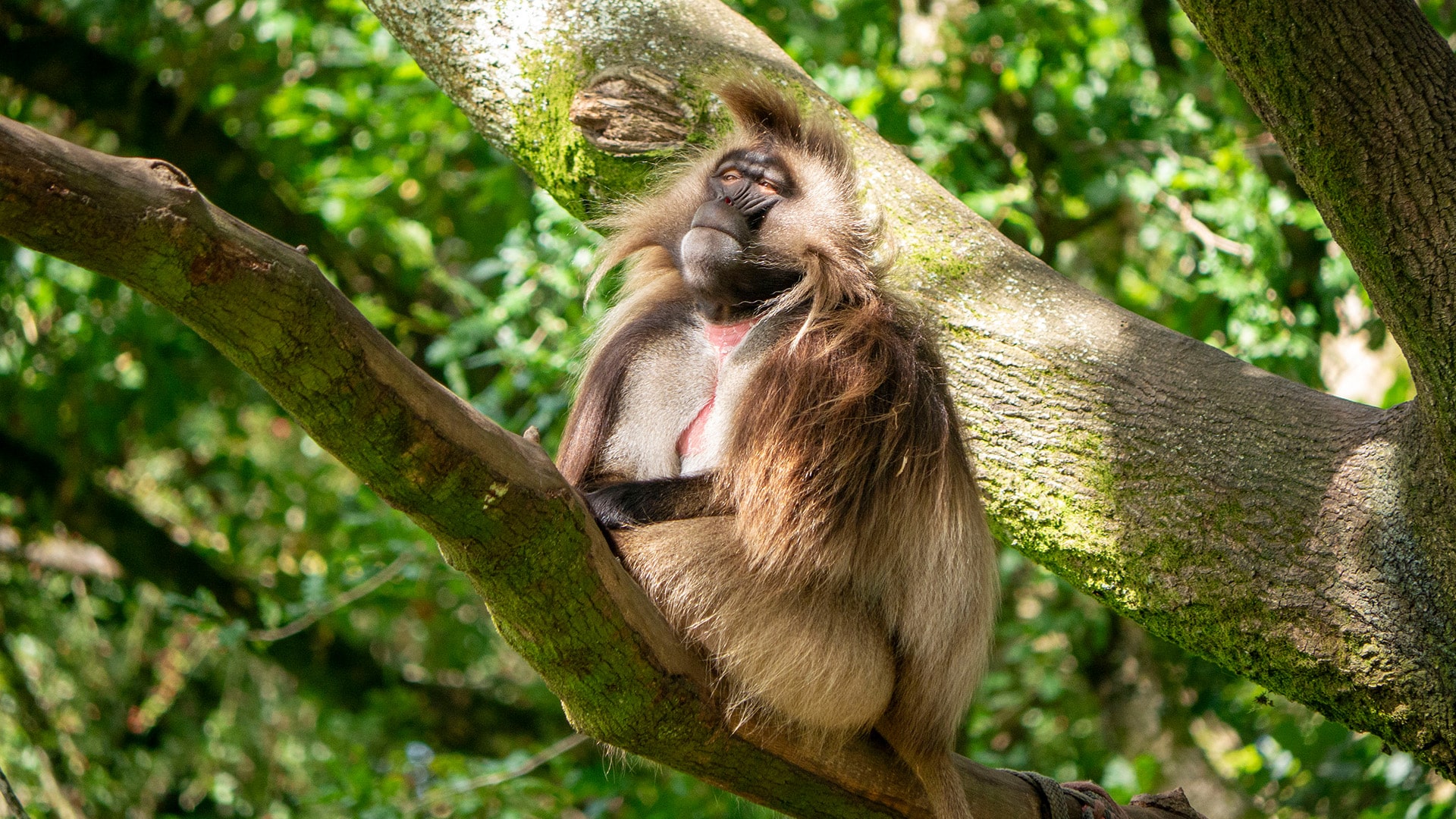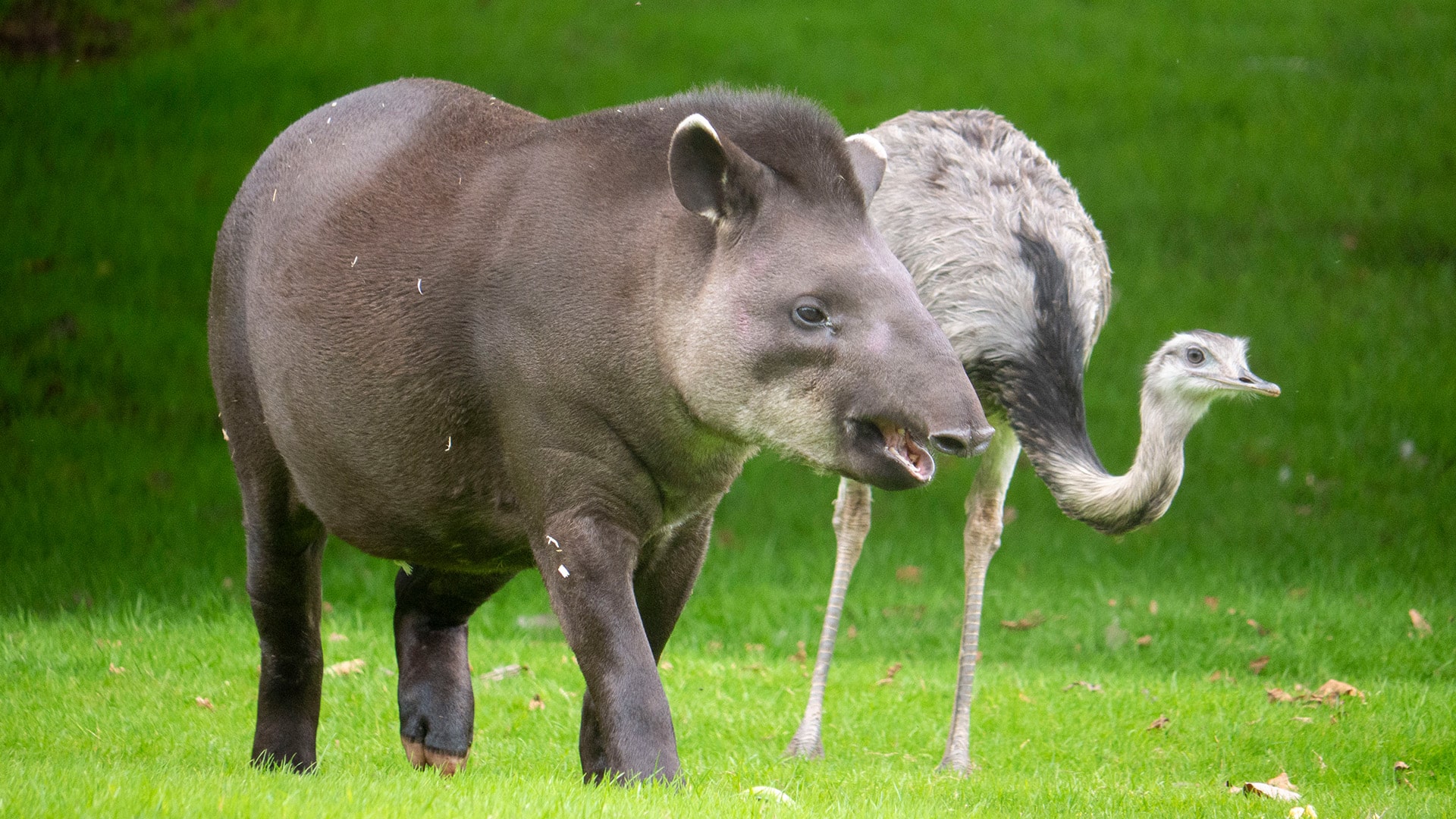Research
At Dartmoor we work hard to ensure animal husbandry mimics the natural environment and allows opportunities for animals to display positive natural behaviours, leading to good welfare. A large proportion of our on-site research focusses on understanding how being in captivity may influence animal behaviour and welfare, and if necessary, how we can minimise this influence.
We often research how husbandry could be improved, e.g. through diets or habitat alterations. Other research topics include the effect of visitors on animal behaviour and how effective our education tools are. A list of recent projects can be found at the end of this page.
Our current research priorities involved understanding more about nutrition and feeding behaviours, nocturnal behaviours and improving captive animal husbandry and welfare. We are also keen to understand more about the impact of nature on human health and wellbeing, and how visitors use our site.
Meet the Team
Louise Cox – Research and Welfare Officer
Louise’s role at Dartmoor Zoo involves coordinating all research conducted on site, managing research-based placement students, and assisting with welfare audits. Alongside this, Louise and our students conduct behavioural observations on many of our animals to monitor their welfare.
After completing a BSc in Animal Sciences, Louise gained an MSc by Research investigating factors that affect food intake in zoo-housed chimpanzees. Previously, Louise completed a placement year conducting research at another UK zoo, worked as a Lemur Warden and as a Nutrition Assistant. She also contributed to the nutrition section of the EAZA Chimpanzee Best Practice Guidelines.
Louise is a member of the BIAZA Nutrition Working Group, and her research interests lie in improving animal diets and feeding behaviours, investigating what our animals get up to when we aren’t around and understanding the impact of enrichment on training and welfare.
Each year we host a couple of undergraduate students who are completing year in industry work placements. These placements are really valuable; both for the students to gain real-world experience and progress their careers, and for us to progress with our research aims! Applications for the 2025-2026 academic year are now closed.
Nilo Mason
Studying BSc Zoology with Professional Experience at the University of Reading
I’m currently researching the behaviour of the tiger and the jaguar. My research interests involve animal cognition and anything reptile-related.
Lucy Butler
Studying BSc Psychology at the University of Southampton
I’m currently investigating the nocturnal feeding behaviours of the cloud rats and binturong.

Do you want to conduct your own research project?
We welcome external researchers, including students, who would like to conduct research with us. We prioritise research that fits within our current topics, though this is not exclusive. We also have a general list of topics available for prospective researchers; please email research@dartmoorzoo.co.uk for more information on this list. Please read the research handbook for further details on conducting research with us, and complete a research proposal form if you would like to apply.
Before any research takes place there are significant legal consideration that must be considered when undertaking research on zoo animals. Our researchers cannot carry out intrusive studies which may cause distress to the animals. Proposals to carry out research within our zoo are carefully reviewed by the collection and assessed in terms of ethics as well as quality of science and the logistics of gathering data.

Current and recent research projects at Dartmoor Zoo:
- The impact of providing cloud rats and binturong with nocturnal feeders
- Investigating the impact of training and experiences on tiger behaviour
- Understanding the nutrient intake of geladas
- Do talk times and visitor numbers affect behaviour of geladas?
- Looking at the effects of the zoo being open and closed on a variety of species’ behaviour
- Investigating the effect of auditory enrichment on otters, Bali starlings and Javan sparrows
- Investigating the effect of enrichment on snail location and enclosure use
- The impact of enclosure moves on blue and gold macaws and iguanas
- Enclosure usage of two dik dik and determining if this changes between day and night

Recent publications include:
- Trefla-Stewart, E and Cox, L. (2023). Battle of the enrichments: comparing the impact of nutritional and sensory enrichment on the behaviour of captive lowland tapirs (Tapirus terrestris). Journal of Zoo and Aquarium Research. 11(3), pages 336-344. https://www.jzar.org/jzar/article/view/729
- S; Walker, M (2020). Biodiversity Assessment using Pit Fall Traps. RATEL, Journal of the Association of British and Irish Wild Animal Keepers
- McAvoy, G and Jonas, C (2019). Enclosure use in captive Iberian Wolves (Canis lupus signatus): Analysis of spatial use and the associated behaviours between Iberian Wolves at Dartmoor Zoo. RATEL, Journal of the Association of British and Irish Wild Animal Keepers.
- Jonas, C (2019). Review: From Tug of War to Tug of Words. RATEL, Journal of the Association of British and Irish Wild Animal Keepers.
- Jonas, C; Bowkett, A & Smith, R (2017) Promoting natural feeding behaviours in primates in captivity. Management of Captive Animals, Global evidence for the effects of interventions. https://www.conservationevidence.com/synopsis/index
- De Lange, R (2017) Building a Burrow for burrowing owls, A. cunicularia. RATEL, Journal of the Association of British and Irish Wild Animal Keepers. Vol. 44 No. 4
